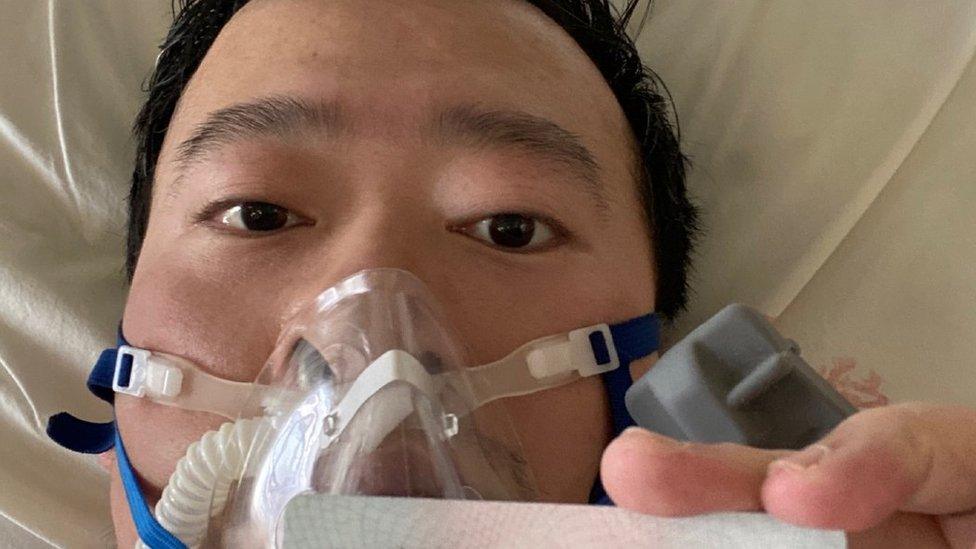The students calling out China on Australia's campuses
- Published
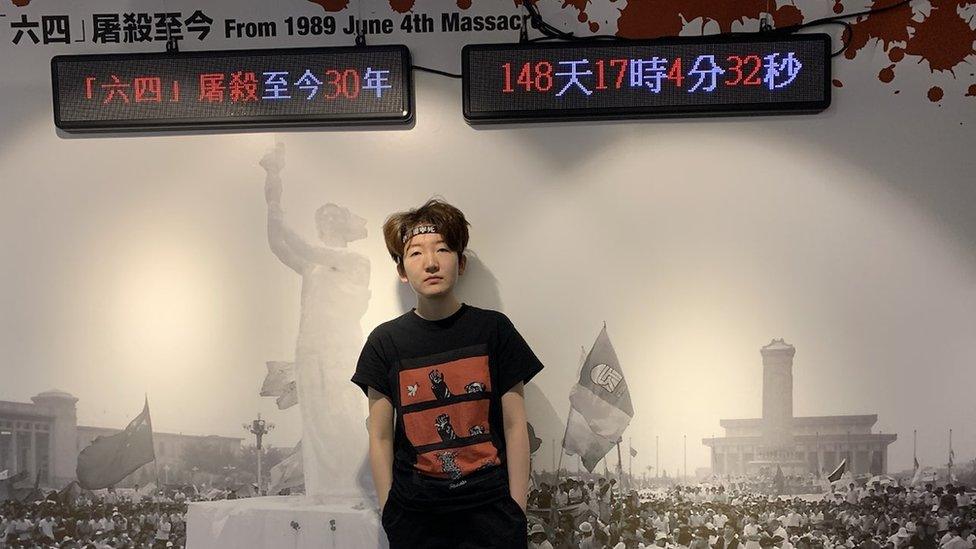
Horror Zoo, a pseudonym, says she has faced backlash for criticising China's policies
Chinese student Horror Zoo has been speaking out against the Chinese Communist Party (CCP) from Australia but, like many activists there, she has discovered that criticising the state can lead to intimidation and threats.
"People say they want to kill me. I can't tell what is true and what is not true," Ms Zoo (who goes by a pseudonym) told the BBC.
Relations between Australia and China are at their worst in years. Tensions have risen over trade, the treatment of the Muslim majority Uyghurs in China's Xinjiang region, and the origins of the coronavirus pandemic.
Ms Zoo decided to organise a protest against the CCP in Melbourne last year, following reports that Chinese bloggers and doctors who tried to warn people about Covid had been censored by the state. She said the protest was also attended by Chinese nationalists.
"Some came to my protest secretly and took pictures. I found my pictures on some Chinese nationalist websites," she said.
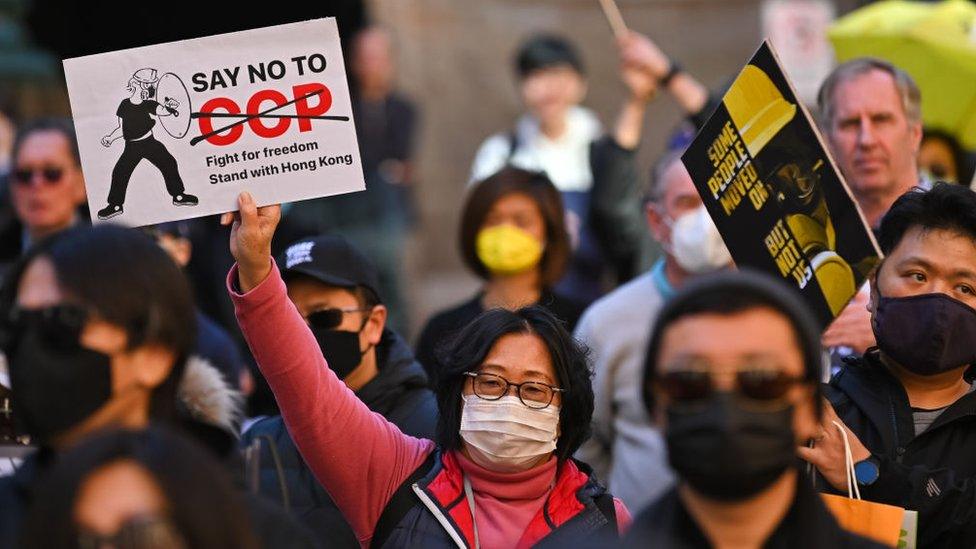
There have been protests across Australia over alleged interference and also in support of Hong Kong protesters
Ms Zoo also ran a Twitter account parodying the Chinese president, Xi Jinping, which was suspended by the social media company. She believes her online activism is what led police in China to call her parents, who are supportive of the CCP.
"The police contacted my parents in China and told them I do a lot of sensitive things on Twitter and that I do some activism," she said.
"My parents think I betrayed China and they think I should go back and surrender myself. I think the police still connect with them. My mum is very afraid of them. She doesn't talk with me about any politics."
She said articles had been published about her on the Chinese app WeChat, and that online threats had caused her mental health to decline.
"I am also afraid they will collect my sensitive information because many friends have said something privately on very secure email but the police in China know what they are doing," she said.
There is rising concern about Chinese government influence in Australia and its effect on freedom of expression. Over the past few years, there have been claims of Chinese interference in Australia's government and also its universities.
Clive Hamilton, professor of public ethics at Charles Sturt University, said fears of Chinese government interference had been an "enormous and continuing issue in Australia for some three or four years now".
"It represents a deep anxiety within the Australian community about Beijing's attempts to influence Australia's democratic institutions," he said. "And there is grave concern at senior levels of government about the same question. It's been one of the top two or three political issues in Australia in recent times."
Relations between the two countries deteriorated recently when Australia called for an investigation into the origins of the coronavirus pandemic. Australia has also raised concerns over China's alleged human rights abuses in Xinjiang.
Rights groups estimate that China has detained more than a million Uyghurs and other Muslims in the region over the past few years, and the Chinese state is accused of forced labour, sterilisation and other abuses. China denies those allegations, saying its network of camps in Xinjiang is part of a crackdown on separatism and Islamist militancy.
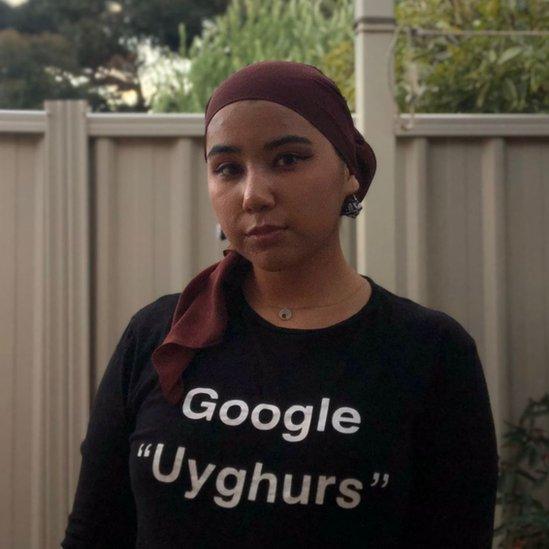
Adila Yarmuhammad says online abuse has increased in recent years
Along with other members of her community, Uyghur-Australian student Adila Yarmuhammad has been protesting every Friday outside the Chinese consulate in Adelaide, which is home to one of the largest overseas Uyghur communities outside Turkey.
"Everyone there has a family member missing," she said.
For Ms Yarmuhammad, raising awareness of the plight of the Uyghurs in China has also brought the fear of being watched.
"A couple of years ago, a lot of us were receiving phone calls at least once a day," she said. "If we didn't pick up, there would be a voice message left in Chinese that would tell us we needed to renew our visas. I was born in Australia, my parents are Australian citizens and most of the community are Australian citizens. It's things like that that shake the community."
Ms Yarmuhammad, along with many other activists, said online abuse has increased in recent years.
"I never had a problem with people attacking me and I'm quite feisty in that sort of sense where I give it back at them, but it does take a huge toll," she said.
"No matter what we say, we will always either have someone being controlled by China, defending China or anyone who just believes that China is a godsend and everything China does is right."
"So we get attacked from both ends."
In a statement to the BBC, a spokesperson for the Chinese consulate in Adelaide said there had "never been any intimidation to any local communities when our Consulate-General performs our due duties".
The spokesperson said the protesters had "caused serious disturbance to our office and neighbouring residents".
"What they have done fully exposes their malicious intention and nature of violence and separatism," they said.
An earlier statement from the consulate urged media in Australia to "look at China in an objective and rational manner, rather than stir up trouble or smear China intentionally".
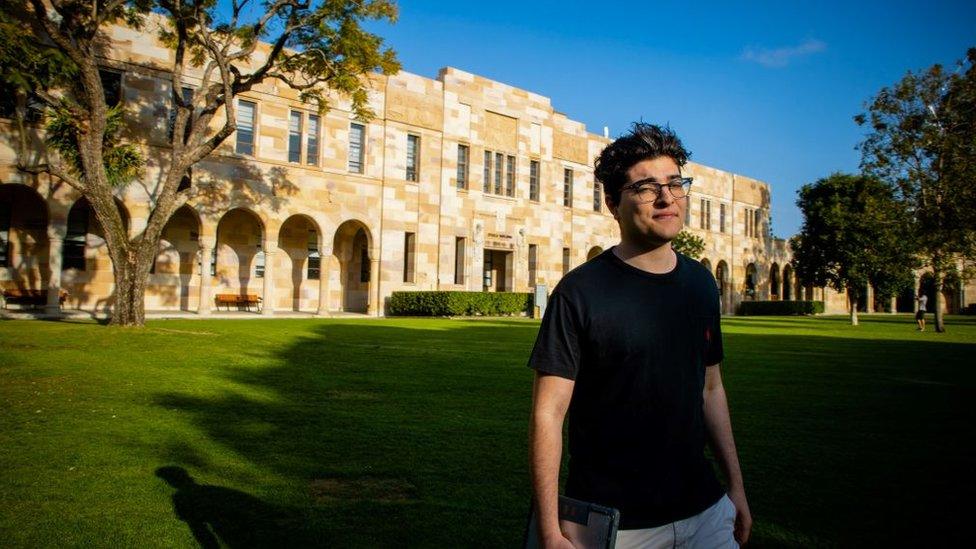
Drew Pavlou has had death threats since protesting in support of Hong Kongers and Uyghurs
Drew Pavlou, a student at the University of Queensland, knows what it's like to be targeted online for speaking out against the CCP.
In 2019, he was attacked by CCP supporters while holding a protest at his university in support of the Hong Kong independence movement.
Since then, he has spoken out about alleged Chinese interference at the university, claims it rejects.
However, incidents like this have prompted Australia to launch a parliamentary hearing on alleged interference on the country's campuses and Mr Pavlou was invited to testify.
In 2019 a taskforce brought together government agencies and universities to counter foreign interference in Australia's universities, external, but critics say much more needs be done to protect academic freedom and students.
In 2020, about 127,000 Chinese students enrolled in Australian universities, making up 39% of international students in the country, external. They provide a key source of revenue - and Prof Hamilton said the CCP keeps a close note of what is being said on campus.
"One essential ambition of the Chinese government is to control the global discourse around China and its role in the world. And that means influencing the narrative of discussions about China - Chinese history and the CCP."
Mr Pavlou has faced backlash both on social media and in Chinese state media.
"I've had so many abusive messages and death threats and stuff like that," he told the BBC.
"I'm not too fussed about it these days because I've got so many of them, but when they do come, it's just really hard on the family," he added.
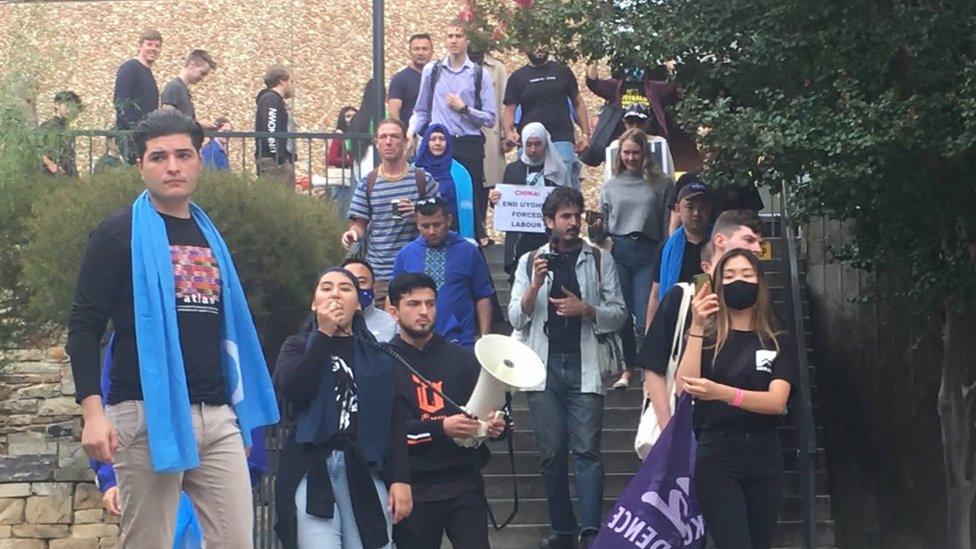
Mr Pavlou and Ms Yarmuhammad pictured at a protest at the University of Adelaide
In April, Mr Pavlou's emails were hacked from a Hong Kong IP address. A cybersecurity expert confirmed to the BBC that the hack was a standard email compromise.
Mr Pavlou said his emails contained sensitive interviews with Uyghurs and some of them were threatened.
He said he was concerned that "the Chinese government was possibly using information from that to further harass the families of Uyghurs in Australia".
But despite all this, he remains focused on campaigning.
"I've always opposed anti-Chinese racism and anti-Asian racism in Australia," he said. "For me it's always been about the fact that this government is not elected - it's a dictatorship that violates the rights of the Chinese people on a massive scale."

You may also be interested in
Chinese students in Australia have been complaining to their teachers about how their country is portrayed
- Published7 September 2019
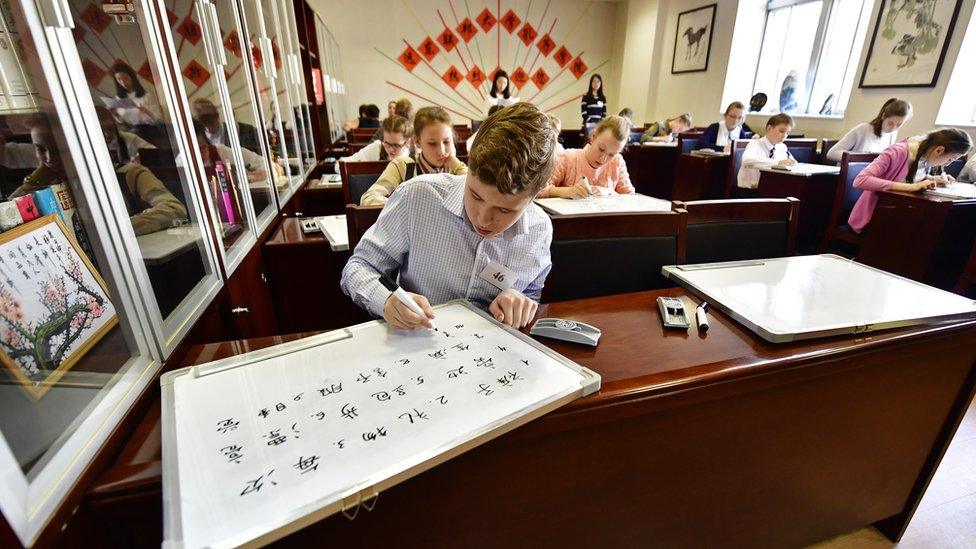
- Published31 July 2019
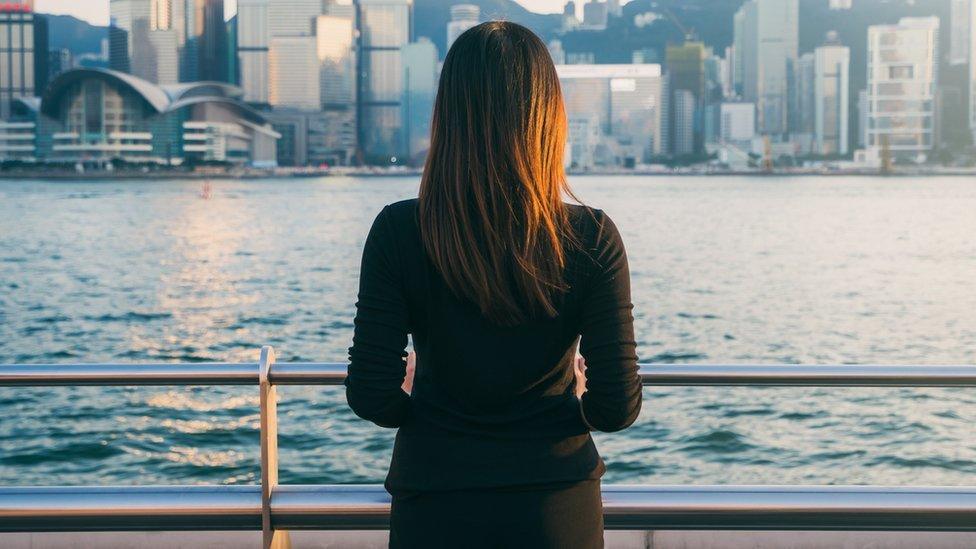
- Published6 February 2020
